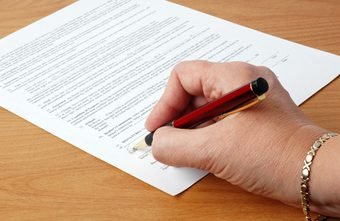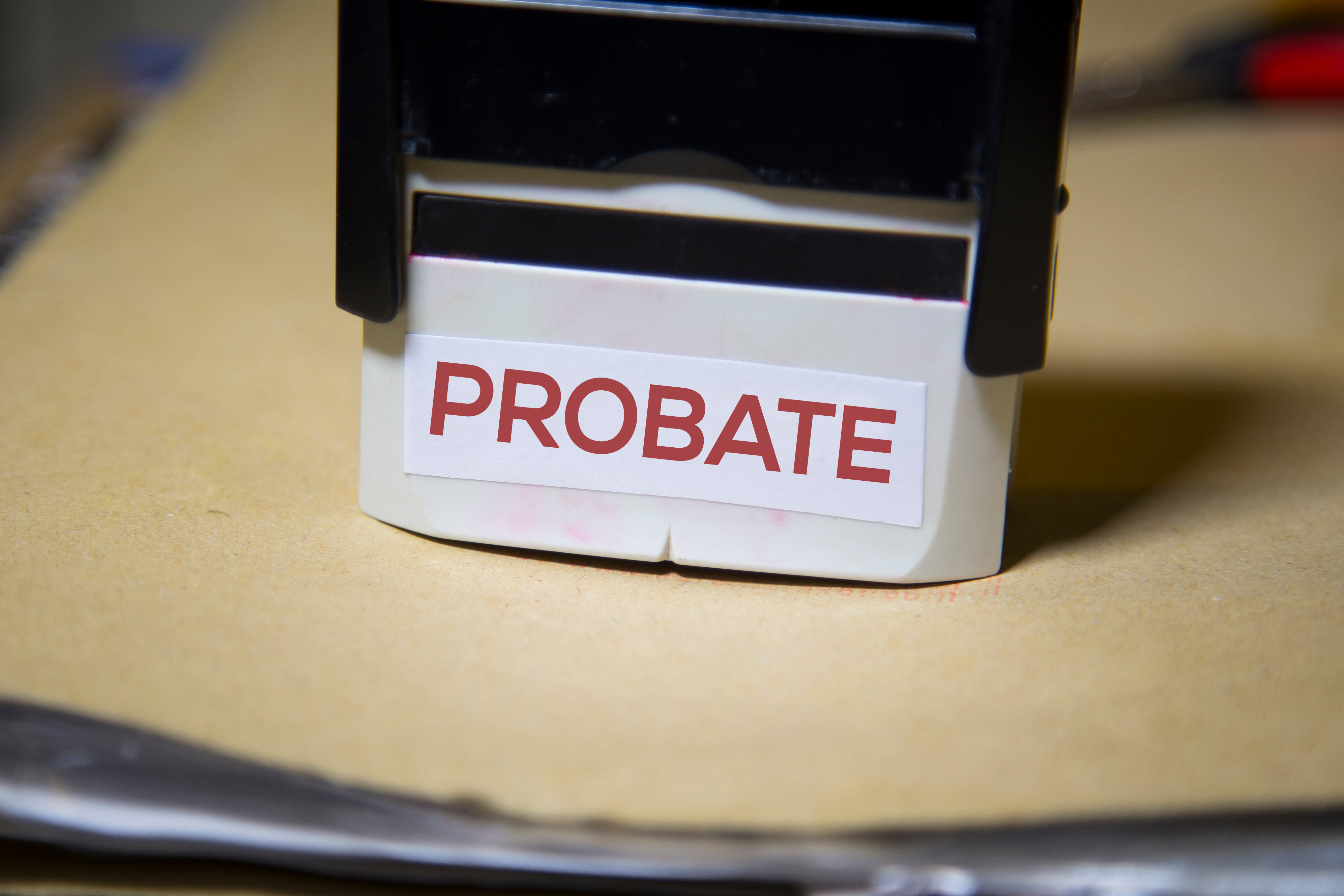Are you thinking about selling a probate or inherited house in Florida?
Probate property sales are challenging – take some time to get familiar with the inheritance process.
This blog walks through common questions and pressing issues when selling an inherited Florida house: filing procedures, costs and fees, attorneys, stages of litigation, tax implications, county records, and court resources.
Read on if you want to sell a house in probate fast, easy, and profitably!
- What Is Probate?
- Do You Need To File Probate Litigation?
- Can I Sell A House During Probate?
- Stages of Probate Litigation
- Top Probate Attorneys in Florida
- Probate Court: Contact Info and Resources
- Probate Costs and How To Pay Them
- Finding Property Info in County Records
- Tax Implications of Selling Probate House
- Sell Direct or Pay A Realtor?
- Alternatives to Selling a Probate House
We Buy Probate Houses!
Call Us (954) 676-1846 Send Text Send Text Send Text or Fill Out This Form For Your FAIR Offer.
What Is Probate?
Probate is the legal process that occurs after a person (“the decedent”) passes away. It is the administration of the “estate” (the sum of the decedent’s assets).
Probate has two main objectives: (1) the debts of the estate are settled, and (2) ownership of property is transferred to heirs and beneficiaries. The process includes proving a will is valid (where one exists), identifying and appraising the decedent’s property, and paying outstanding debts and taxes.
If property remains after resolving valid creditor claims, it is distributed in accordance with local state law. Probate property includes real state, personal property, as well as financial instruments (stocks, bonds, ownership in business).
Do You Need To File Probate Litigation?
Probate litigation is necessary to inherit property in Florida.
This is true whether the decedent left a will (“testate”) or did not leave a will (“intestate”).
Testate Probate (With A Will).

Where the deceased person left a valid will, it must be admitted to the probate court to be effective.
Florida law states that “the custodian of a will must deposit the will with the clerk of the court having venue of the estate of the decedent within 10 days after receiving information that the testator is dead.” F.S. 732.901.
In addition, Rule 5.210 of the Florida Probate Rules mandates that heirs must file a petition to admit a decedent’s will identifying the following:
- Statement of interest and contact information for petitioner;
- Name, last known address, and personal information of the decedent;
- Surviving spouses and beneficiaries;
- Existence of all unrevoked wills; and
- Statement that will has been deposited with the county court.
Intestate Probate (Without A Will).
Where the deceased person did not leave a will, filing probate is also necessary to inherit a house in Florida.
The property of decedent not disposed of by a will passes to heirs via the rules in F.S. 732.101-111. Rule 5.200 requires that heirs file a petition for administration.
As to the existence of a will, the petitioner must state that: “after the exercise of reasonable diligence, the petitioner is unaware of any unrevoked wills or codicils, or if the petitioner is aware of any unrevoked wills or codicils, a statement why the wills or codicils are not being probated.”
Can I Sell a House During Probate?
You can absolutely sell a house in Florida during probate.

Selling an inherited house may even be necessary to settle estate debts, pay legal fees, or resolve disputes among heirs.
When selling a house during probate litigation in Florida, courts typically expect you to provide the following:
- Petition for Order Authorizing the Sale of Real Property, signed by Personal Representative and Attorney, including statement that the contract is fair market price, sale is arm’s length transaction, include property legal description and street address.
- Copy of Sales Contract.
- Copy of Appraisal or Broker’s Letter with comparable market analysis.
- Consents of ALL residuary beneficiaries in the estate, or proof of formal notice, without objection or set a hearing with notice.
- Submit Proposed Order on Sale of Real Property or bring the order to an ex-parte or scheduled court hearing.
The court – if the materials are deemed sufficient – issues an order approving the sale.
Sale proceeds first pay off the estate debts, and the remaining is distributed to heirs.
Stages of Probate Litigation
Probate litigation in Florida has 5-stages:
- Stage #1: Filing The Petition. Probate litigation is instituted by: (1) an executor (or personal representation) named in the will applying for the court to validate the will; or (2) when there is no will, a person petitions the court to be named executor.
- Stage #2: Notice To Creditors and Beneficiaries. The personal representative – typically through an attorney – notices anyone with an interest in the estate (creditors and beneficiaries).
- Stage #3: Payment of The Estate’s Debts, Taxes, and Expenses. A decedent’s debts do not disappear – they must be paid before you inherit any property. This may include credit cards, mortgages, back taxes, outstanding bills, and attorney fees.
- Stage #4: Legal Title in Property Transfers In Accordance With Will And/Or Local Law. Once the estate settles its debts, the personal representative petitions the court to transfer remaining assets to beneficiaries.
- Stage #5: Closing the Probate Estate. Executor prepares a final account and petition for final distribution. A hearing is scheduled with notice to interested parties, creditors are paid and assets are formally distributed. A “closing statement” or “closing affidavit” establishing that all assets were properly distributed.
What to learn more about probate phases?
Check out our blog How Probate Work in Florida.
Top Probate Attorneys In Florida
In Florida, virtually all probate filings need an attorney.
Rule 5.030 requires “every personal representative, unless the personal representative remains the sole interested person, shall be represented by an attorney admitted to practice in Florida.”

We’ve done some heavy lifting to identify top rated probate attorneys in Florida.
Here is the list!
Marrero, Chamizo, Marcer Law, LP. Boasting over 30-years’ experience, Marrero Chamizo Marcer Law was voted in the 10 Best Law Firms for client satisfaction by the American Institute of Family Law Attorneys. This is one of the best rated firms in the county with 68 Google My Business Reviews and a 4.3-star rating.
Contact Info.
- URL: https://www.marrerolawfirm.com/
- Address: 3850 Bird Road Suite 1001, Miami, FL 33146.
- Telephone: (305) 414-0068
Bryant Law Firm. Bryant Law Firm, founded by Randy A. Bryant in 1998, focuses on probate administration and litigation, wills and trusts, will contests, and guardianship. This legal group has a 4.8-star rating after 52 Google My Business Reviews. A good choice for a probate specialist.
Contact Info.
- URL: https://www.miamiprobatefirm.com/
- Address: 28 West Flagler Street Suite 1200, Miami, FL 33130.
- Telephone: (305) 456-2777
Eric S. Kane, P.L. According to satisfied client Mimi Roberts, “He’s obviously very knowledgeable in this complicated field and I felt to be in great hands. He is a stickler for detail and incredibly patient. I could not have asked for more. In the end, the professional services rendered to me were top notch.”
Contact Info.
- URL: http://www.kanelawpl.com/
- Address: 20900 NE 30 Ave, Ste. 403, Aventura, FL 33180
- Telephone: (305) 937-7280
Of course, there are plenty of other probate attorneys in Florida. Check out Yelp, Avvo, Findlaw, and LegalMatch for other options.
What to know more about selecting the right probate attorney?
Check out our blog Choosing The Right Probate Attorney!
Probate Court: Contact Info and Resources
Probate litigation occurs at the county level in Florida. For example, probate litigation is filed with the Clerk of the Courts in Miami-Dade County.

Miami-Dade’s probate court office is located at 73 W Flagler Street, Suite 234, Miami, FL 33130. Contact the probate court office by calling (305) 275-1155 or filling in the online form here.
Probate resources, rules, and info are available online:
- Florida Statutes (Chapter 732, Intestate Success & Wills)
- Probate Court Rules (Court Rules 5.010 – 5.900)
- Probate Check Lists (Eleventh Circuit, Miami-Dade County)
- Family, Probate, and Wills (Clerk of Courts)
Probate Costs & How To Pay Them
Probate litigation is expensive.
Many heirs wishing to sell a probate house in Florida struggle to afford the process.
Costs to expect in Forida include:
- Attorney’s Fees. Legal fees are the largest cost. Probate attorneys file the petition, notice heirs and creditors, conduct a property inventory of assets and liabilities, and manage the litigation. Compensation for simple cases averages $150/hour – complex cases can reach up to $300/hour for complex cases. Hourly rate is also dependent on the city and lawyer’s skill level.
- Court Filing Fees. Florida charges $232.00 to open the probate estate, $236.00 for estate’s less than $1,000 in value, and $346.00 for estates greater than $1,000. Click here for the Civil Probate fee schedule.
- Personal Representative Fee. Personal representatives in Florida may charge a fee. According to S. 733.617, “A personal representative shall be entitled to a commission payable from the estate assets as compensation for ordinary services. Commission shall be based on the value of the estate, which is the inventory value of estate assets and income earned by the estate during administration.” A 3% fee on the first $1 million in assets is presumed reasonable.

Don’t have cash readily available to start probate?
Here are some alternative payment options:
- Distribution of Estate Proceeds. Attorneys supply the entire costs for probate in exchange for being compensated directly from the estate.
- Professional Cash Home Buyer. Professional real estate investors pay for probate if the heir and investors agree on a price to sell a house at the conclusion of litigation. Interested in this service? Call us at (954) 676-1846 Send Text Send Text Send Text or click here for an offer.
- Percentage of An Estate. Rather than paying an attorney out of estate proceeds, attorneys may accept a percentage the estate as compensation.
- Pro Bono & Legal Aide. In Florida, you can waive filing fees by submitting an Application For Determination of Civil Indigent Status if you’re income falls below specified thresholds. As to attorney fees, contact pro bono organizations to see if you meet criteria for free representation.
Finding Property Info in County Records
The details for any Florida probate house are available online.
Gathering information is particularly important selling an inherited house – heirs frequently are unfamiliar with the specifics.
The best source for information is direct county records. It is the most accurate and recent information.
There are three main categories of county-wide data: (1) property details; (2) tax information; and (3) sales comps.
The House Specifications.
Local property appraiser websites (for example – the Miami-Dade County property appraiser) allows you to search by address, owner name, and folio number. Information available includes living area, use, bedroom/bathroom, floors, lot size, year built, zoning, just market values, assessed values, sales history, and features.

This info helps compare the probate house to other nearby properties (the “neighborhood fit”) and recent sales and active listings (the “comps”).
Tax Information.
Not sure if taxes are up-to-date?
Most counties in Florida maintain a tax assessor website. For example, visit the Miami-Dade’s tax assessor site for info on the property’s tax payments, liens, and certificates.
Decedents – due to age and income issues – often fall behind on taxes. Heirs may be completely unaware. If the tax assessor shows delinquent taxes, check for a scheduled tax auction here.
Sales Comps & Active Listings.
Sites like Zillow, Redfin, or Realtor do not include all sales and lack recent sales records available through the county.
It is highly advisable to rely directly on first-hand property records.
The best systems to access county sales data are IMAPP and the MLS. IMAPP and the MLS require a subscription and are not publicly accessible.
For a free customized report on any Florida property, give us a call (954) 676-1846 or just fill-in the form on our free home report page.
Tax Implications: Selling a Probate House
Make sure to have a firm grasp on the tax consequences if you sell the Florida probate house.
There are three main tax categories to be aware of: local estate tax, inheritance tax, and the federal estate tax.
Local Estate Tax.
An “estate tax” (also known as “death tax”) is levied on an heir’s inherited portion of an estate if the overall value of the estate exceeds an exclusion limit.
You don’t have to worry about local estate taxes when selling a Florida house.
Florida does not charge an estate tax.

State Inheritance Tax.
An “inheritance tax” is a tax based on you inherited a specific property.
Keep in mind – “inheritance tax” is different than “estate tax”. The estate tax is assessed against the overall value of the estate and an inheritance tax is based on an individual bequest.
Here’s what Julie Garber at The Balance explained:
At first glance, the difference between an estate tax and an inheritance tax may appear to just be semantics. Both are collected as the result of someone’s death, but an inheritance tax is based on an individual bequest of property—literally each inheritance.
An estate tax is assessed against the overall value of a decedent’s estate, all gifts made to all beneficiaries. A decedent’s estate is responsible for paying the estate tax, whereas the beneficiary is liable for the inheritance tax.
You are again in luck when selling a Florida probate property.
Florida doesn’t charge an inheritance tax.
Federal Estate Tax.
The Internal Revenue Service charges an estate tax under certain conditions (although there is no federal inheritance tax).
Get the details of the federal estate tax directly from the IRS’s estate tax guidance and frequently asked questions.
The IRS explains the federal estate tax as follows:
If the decedent is a U.S. citizen or resident and decedent’s death occurred in 2016, an estate tax return (Form 706) must be filed if the gross estate of the decedent, increased by the decedent’s adjusted taxable gifts and specific gift tax exemption, is valued at more than the filing threshold for the year of the decedent’s death. The filing threshold for 2018 is $11,180,000, 2017 is $5,490,000, for 2016 is $5,450,000, for 2015 is $5,430,000, for 2014 is $5,340,000, for 2013 is $5,250,000, for 2012 is $5,120,000, and for 2011 is $5,000,000.
Tax law is incredibly complex.
Consult a qualified accountant and/or attorney.
Sell Direct or Pay A Realtor?
Those selling probate or inherited property face the following question.

Should I sell my house on my own, or hire a real estate agent?
There are advantages and disadvantages of each approach.
Let’s walk through them . . .
Reasons to sell on your own:
- Save up to 6% in realtor commission.
- Avoid “open houses” and repeated showings.
- No online listings or “for sale” signs on the lawn.
- Close faster on your schedule.
- Avoid exclusive listing agreements guaranteeing commissions even if you find the buyer or the agent fails to get the promised price.
Reasons to hire an agent:
- Limited time available to oversee the sale.
- Agents serve as a neutral negotiator.
- House will be listed publicly for sale.
- Don’t mind waiting some time to sell for top dollar.
- Little knowledge of real estate sales.
Alternatives To Selling a Probate House
Not sure if you want to sell your Florida probate house?
Several other options are available if you inherit a house:
- Move In. Are you renting or unhappy with your current living arrangement? Probate house are frequently “free and clear” (i.e. the mortgage has been paid off). You can move in and live without substantial monthly rent or mortgage payments. Of course, the downside is by not selling you will not receive a lump sum cash payment.
- Rent It Out. Want a steady stream of monthly payments? Consider renting the place. Study the local neighborhood rental rates. Houses with 3+ bedrooms in a good neighborhood tend to make solid investments. You can also capture appreciation by holding the real estate overtime. Be wary if you live far away – long distance landlords struggle to manage rental property.
- Become The Tenant! Many heirs don’t realize you can get a lump sum payment and move into the property (or remain there if you already reside there). Real estate investors often are happy to buy the property for cash and let you remain under a lease.
Considering selling a probate or inherited house in Florida?
Give us a call (954) 676-1846 Send Text Send Text Send Text, click here, or fill in the form below for a no-obligation, totally free, as-is all-cash offer without paying any fees or commission.
This guide applies to the following cities: Jacksonville, Miami, Tampa, Orlando, St. Petersburg, Hialeah, Port St. Lucie, Tallahassee, Cape Coral, Fort Lauderdale, Pembroke Pines, Hollywood, Miramar, Gainesville, St. Augustine, Coral Springs, Lehigh Acres, Clearwater, Palm Bay, Brandon, Miami Gardens, Pompano Beach, Palm Beach, Lakeland, Davie, Spring Hill, Boca Raton, Sunrise, Plantation, Deltona, and Riverview.
We Buy Probate Houses!
Call Us (954) 676-1846 Send Text Send Text Send Text or Fill Out This Form For Your FAIR Offer.


Get A Fair Cash Offer. Call Us (954) 676-1846 or visit our Get A Fair Cash Offer page to find out how much we can pay you!

Our Team. Learn about our values and history. Meet the House Heroes Team – Lucas, Nick, Earl, Danielle, and Meghan!

How It Works. We buy houses in three-steps. Fast, cash, as-is, no realtor fees, fair prices. Learn how we do it!

Testimonials and Reviews. Honesty, integrity, and trust. Check out our video testimonials and social media reviews.

Case Studies. We buy houses in any condition. Watch the inside videos of our purchases – not for the faint of heart!

Frequently Asked Questions. Got some questions about House Heroes? Get all the answers over on our FAQ page.

